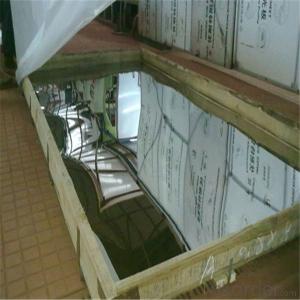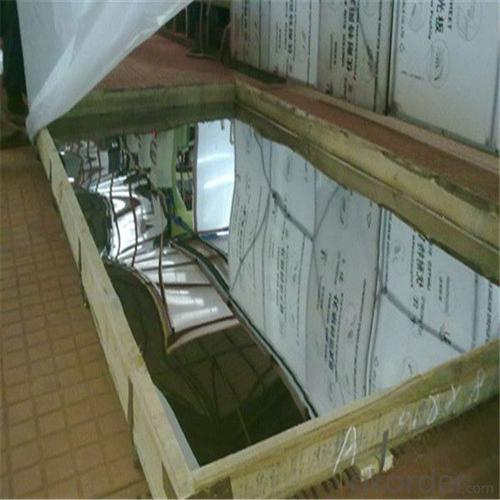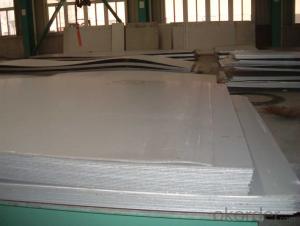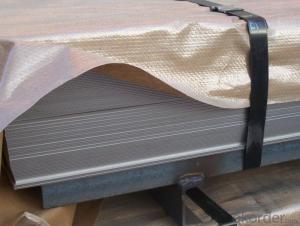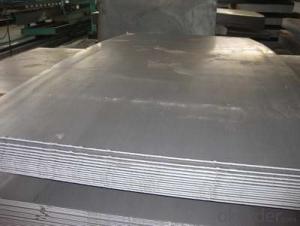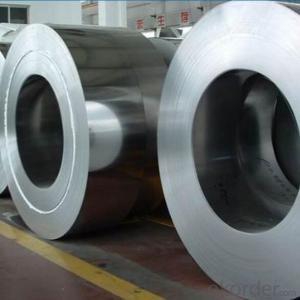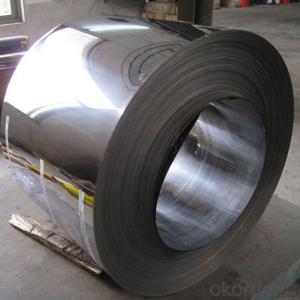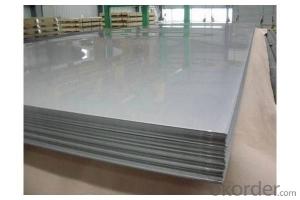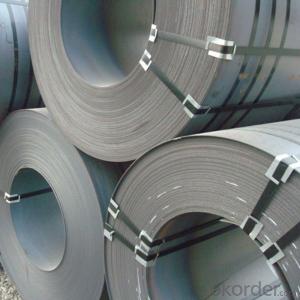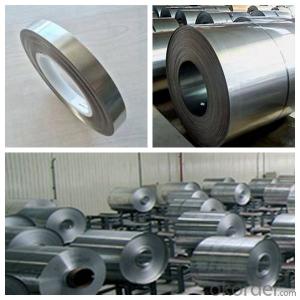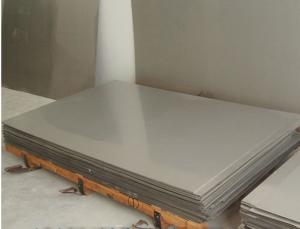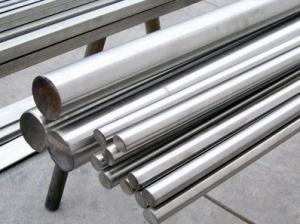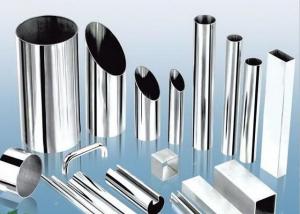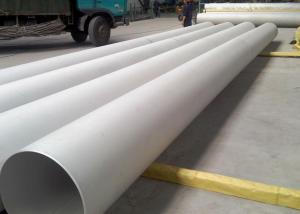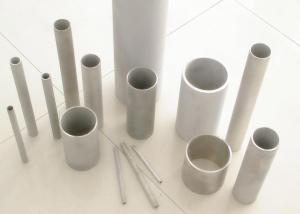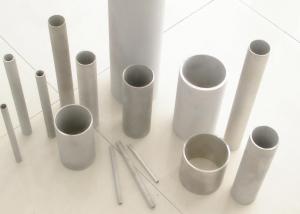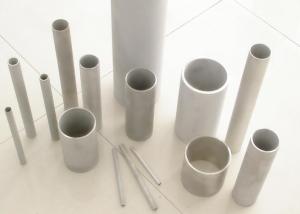Stainless Steel Dinner Plate Hot Sale in China
- Loading Port:
- Shanghai
- Payment Terms:
- TT OR LC
- Min Order Qty:
- 3 m.t.
- Supply Capability:
- 20000 m.t./month
OKorder Service Pledge
OKorder Financial Service
You Might Also Like
Specification
Product Description
Hot Sale Stainless Steel Dinner Plate
Material | Ferrite stainless steel, magnetic. |
Certification & Standard | SGS & AISI |
Grade | 410 430 |
Brand | BAOSTEEL&TISCO&JISCO |
Type | Cold Rolled |
Thickness | 0.12mm ~ 2.0mm (tolerances ±0.02 mm) |
Width | 150 mm ~1240 mm(tolerances ±0.02 mm) |
Length | As customers' requirements |
Surface Finish | NO.2B / NO.3 / NO.4 / HL / 8K / BA |
Market | Southeast Asia, Mid East, Africa, Eastern Asia, Western Europe ,etc. |
Delivery Time | 20 to 30 days upon receive of deposits |
The sizes or thickness of stainless steel coil can be customized, if you need additional information, please don't hesitate to contact us at anytime. | |
Chemical Compositon and Physical Property:
| Type | Chemical Composition (%) | |||||
| 410 | C | SI | Mn | S | P | Cr |
| 0.03 | 0.32 | 0.25 | 0.001 | 0.019 | 12.21 | |
LENGTH: 2000-3000mm, customized
WIDTH: 1000-1500mm, customized
THICKNESS: 0.3-20mm, customized
Certification: SGS, ISO
Lead time: 10-15 DAYS
Capacity: 2000 ton/month
Adevantage: we ensure the best quality and provid the best service, the most important is we give you the best price!!!
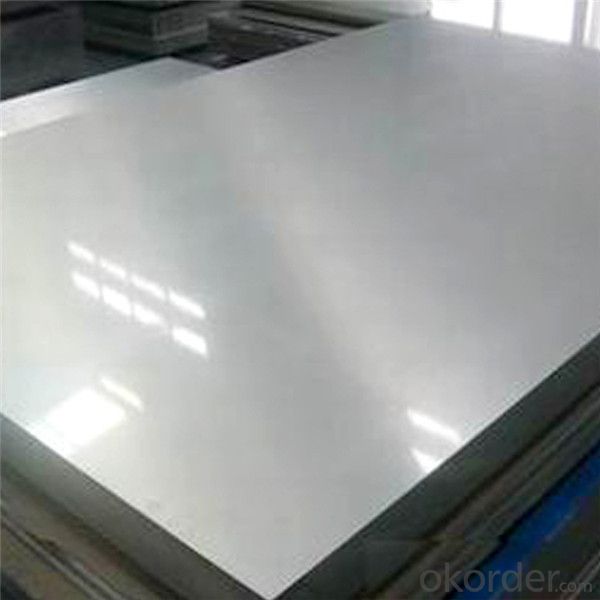
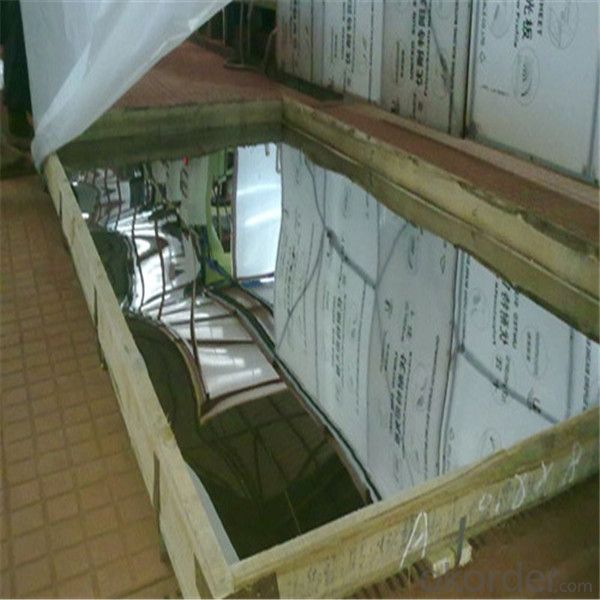
- Q: What is the difference between brushed and polished stainless steel sheets?
- Brushed and polished stainless steel sheets differ in terms of their appearance and texture. Brushed stainless steel sheets have a textured, matte finish that is achieved by brushing the stainless steel surface with an abrasive material. This creates a series of parallel lines or a pattern on the metal, giving it a distinctive look. The brushed finish helps to hide scratches and fingerprints, making it a popular choice for applications where durability is important. On the other hand, polished stainless steel sheets have a smooth, glossy finish that is achieved by polishing the surface with a fine abrasive compound. This process removes any imperfections or scratches on the metal, resulting in a mirror-like reflection. The polished finish is more reflective and visually appealing, making it commonly used in decorative applications where aesthetics are a priority. In summary, the main difference between brushed and polished stainless steel sheets lies in their appearance and texture. While brushed stainless steel sheets have a textured, matte finish that is more resistant to scratches and fingerprints, polished stainless steel sheets have a smooth, glossy finish that provides a mirror-like reflection. The choice between brushed and polished stainless steel sheets depends on the desired aesthetic and the specific application requirements.
- Q: Can stainless steel sheets be used in high-temperature applications?
- Indeed, high-temperature applications can utilize stainless steel sheets. Renowned for its superb heat resistance characteristics, stainless steel proves itself adaptable in environments boasting elevated temperatures. Notably, it boasts a formidable melting point, ensuring its durability and structural integrity endure even under extreme conditions. Furthermore, stainless steel showcases commendable oxidation resistance, thwarting scale formation and preserving its surface's sleekness. Consequently, stainless steel sheets rank favorably when considering their widespread employment in diverse high-temperature settings, encompassing heat exchangers, furnaces, boilers, and exhaust systems.
- Q: Are stainless steel sheets non-magnetic?
- No, stainless steel sheets are not inherently non-magnetic. While certain types of stainless steel can be non-magnetic, such as the austenitic variety (grades like 304 and 316), many other types of stainless steel can still exhibit magnetic properties. This is particularly true for ferritic and martensitic stainless steels. The magnetism in stainless steel is determined by its composition and crystal structure. So, if you are specifically looking for non-magnetic stainless steel sheets, you should opt for the austenitic grades.
- Q: What type of welding rod is used for 304 stainless steel plate welding?
- A102 is Cr19Ni10 stainless steel electrode titanium calcium type coating, corrosion resistance of the deposited metal has good mechanical properties and resistance to intergranular, has excellent welding performance and anti porosity property, anti cracking, red medicine Pinai. A107 is a Cr19Ni10 stainless steel electrode with alkaline coating. The deposited metal has good mechanical properties and intergranular corrosion resistance. Therefore, they are aimed at 304 development of welding electrodes.
- Q: Can stainless steel sheets be used for wastewater treatment?
- Yes, stainless steel sheets can be used for wastewater treatment. Stainless steel is highly resistant to corrosion and can withstand harsh chemicals and environments, making it an ideal material for wastewater treatment applications. It can be used for constructing tanks, pipes, and other equipment used in the treatment process. Stainless steel sheets are also easy to clean and maintain, reducing the risk of contamination. Additionally, stainless steel is a sustainable material as it can be recycled, making it an environmentally friendly choice for wastewater treatment facilities.
- Q: Are stainless steel sheets suitable for medical equipment or devices?
- Yes, stainless steel sheets are commonly used in the manufacturing of medical equipment or devices due to their excellent corrosion resistance, durability, ease of cleaning, and ability to withstand sterilization processes.
- Q: What are the different types of edges available for stainless steel sheets?
- Stainless steel sheets can have a variety of edge types, including mill edges, slit edges, deburred edges, sheared edges, and rounded edges.
- Q: Are stainless steel sheets suitable for outdoor furniture?
- Stainless steel sheets are indeed a fantastic option for outdoor furniture. Renowned for their outstanding durability and ability to resist corrosion, stainless steel is the perfect material to withstand the harsh effects of the outdoors, including rain, sunlight, and temperature fluctuations. Moreover, cleaning and maintaining stainless steel sheets is a breeze, as they require minimal effort to retain their pristine appearance. Furthermore, stainless steel possesses a sleek and contemporary look that can enhance the overall aesthetic appeal of outdoor furniture. In summary, stainless steel sheets provide the impeccable blend of strength, longevity, and visual charm, establishing them as an excellent selection for outdoor furniture.
- Q: What is the thermal expansion coefficient of stainless steel sheets?
- The thermal expansion coefficient of stainless steel sheets varies depending on the specific grade and composition of the stainless steel. However, in general, stainless steel has a lower thermal expansion coefficient compared to other metals. The coefficient of thermal expansion for stainless steel sheets typically ranges between 10.8 x 10^-6 to 18.0 x 10^-6 per degree Celsius. It is important to note that this coefficient may vary slightly for different types of stainless steel alloys.
- Q: Are stainless steel sheets suitable for chemical reactors?
- Yes, stainless steel sheets are suitable for chemical reactors. Stainless steel is a preferred material in the chemical industry because of its excellent corrosion resistance properties. It can withstand a wide range of chemicals, including acids, alkalis, and solvents, without undergoing significant degradation or reacting with the substances being processed. Stainless steel sheets are particularly chosen for chemical reactors due to their high strength, durability, and resistance to high temperatures and pressure. They can handle the harsh conditions and aggressive substances found in chemical processes without compromising their structural integrity. Moreover, stainless steel sheets are easy to clean and maintain, making them suitable for applications where cleanliness is crucial, such as pharmaceutical and food processing industries. They also have excellent heat transfer properties, allowing for efficient temperature control within the reactor. In summary, stainless steel sheets are a reliable choice for chemical reactors due to their corrosion resistance, strength, durability, and thermal properties. They provide a safe and long-lasting solution for handling various chemicals, making them widely used in the chemical industry.
Send your message to us
Stainless Steel Dinner Plate Hot Sale in China
- Loading Port:
- Shanghai
- Payment Terms:
- TT OR LC
- Min Order Qty:
- 3 m.t.
- Supply Capability:
- 20000 m.t./month
OKorder Service Pledge
OKorder Financial Service
Similar products
Hot products
Hot Searches
Related keywords
